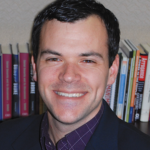Editor’s Note: Colorado will establish a statewide single-payer health care system to be known as ColoradoCare if voters approve ballot measure Amendment 69. Anticipating the November 8 vote, Health Care News asked Dr. Hal Scherz how a “Yes” vote would affect patient care. Scherz serves as secretary of the board at the Docs4PatientCare Foundation, vice president of finance at Georgia Urology, and chief of urology at Scottish Rite Children’s Hospital in Atlanta.
Hamilton: What is motivating some Coloradans to support the establishment of a statewide single-payer health care system?
Scherz: I don’t think ColoradoCare proponents are bad people. I just think they’re just terribly misguided. They believe health care is so expensive and difficult to navigate that letting the state take it over to administer health care would be an improvement. The proposals to accomplish this, however, are crazy. They’re promising everything from soup to nuts for people’s health care. In theory, people would get anything they want. ColoradoCare would even pay for their health care if they go out of state.
Hamilton: How would the state pay for ColoradoCare, and could the system be sustainable? (See article on p. 14.)
Scherz: In order to pay for this, Coloradans would increase the state income tax by 10 percentage points, from 4.5 percent to 14.5 percent. Small businesses would be hit hardest because they would have to pay an employer tax and an employee tax, and then the proposal goes even further. It taxes non-wage related income an additional 10 percent.
Hamilton: The Colorado Health Institute, also called CHI, estimates ColoradoCare would run a $253 million deficit in its first year and a $10 billion deficit in its 10th year. (See article on p. 15.) ColoradoCare proponents say CHI overlooked the plan’s opportunities for savings. Who is right?
Scherz: ColoradoCare’s proponents’ numbers are amply contrived. They’re make-believe, because nobody knows what the meat on the bones is as far as this health care plan is concerned. Doctors don’t know how much they’re going to be reimbursed. Patients don’t know whether their doctors are going to be on this plan. Ostensibly, every patient and physician are supposed to be on this plan, but we don’t know that. Today, insurance companies are dropping the more expensive doctors from their plans. By more expensive, I don’t mean they’re inferior; I mean they’re taking care of patients with complicated problems, and they cost the insurance companies more money, so insurance companies like United Healthcare have significantly scaled back patient choice.
Hamilton: Has any state come close to implementing a successful single-payer health care system?
Scherz: The ColoradoCare system has almost been created in a “just trust us” scenario. They don’t even have the details worked out. Vermont tried to do this a few years ago, and Vermont has one-eighth the population of Colorado. Vermont’s proposal was not nearly as comprehensive as this Colorado plan, and they abandoned that plan. Vermont Gov. Peter Shumlin (D) abandoned this plan because it was going to be $2 billion in the red in the first year, so I don’t see how Colorado’s single-payer plan is going to succeed.
Hamilton: How would ColoradoCare affect the state’s numerous direct primary care providers, who provide preventive care, basic tests, and discounts on drugs and specialized services to clients for a low monthly fee paid directly by patients instead of through insurers?
Scherz: The direct primary care model would be severely threatened for several reasons. First, it’s unclear whether any kind of delivery model outside of ColoradoCare will be legal if Amendment 69 passes. Direct care might become against the law, just as it is in Canada.
Secondly, if people are getting their health care and paying for it through a potential 20 percent tax increase, they may be inclined not to want to spend another nickel out of their pockets for health care in exchange for what I would consider inferior care, because they’re just tapped out. They won’t be willing or able to spend any more, not even to obtain effective health care. This possibility threatens what is turning out to be an incredible model around the country.
I’m really concerned, not so much as a doctor or patient, but as an American, because I’m afraid that Colorado doesn’t know what they’re in for.
Hamilton: Fair points, but how does one argue against a 0 percent uninsured rate? Isn’t that the holy grail of insurance reform intended by the Affordable Care Act?
Scherz: I’ve spoken informally to a lot of Colorado doctors who are prepared to leave Colorado if Amendment 69 passes. If that’s a small sample of what is likely to happen, there’s going to be a severe physician shortage in Colorado.
What’s going to happen to Coloradans then? They’re not going to stay in a state where they can’t get decent health care. Even worse, do you think Colorado is going to attract any businesses when state taxes are so high and their employees are at risk of not getting proper health care?
If Coloradans like living in Colorado and wish to continue to enjoy the quality of life they have now, they’d better think twice before changing their health care system into something that is going to hurt them and their families, because they won’t be staying in Colorado very long.
Michael T. Hamilton ([email protected]) is managing editor of Health Care News, author of the weekly Consumer Power Report, and host of The Heartland Institute’s Health Care News Podcast.
Image via Thinkstock





